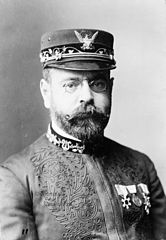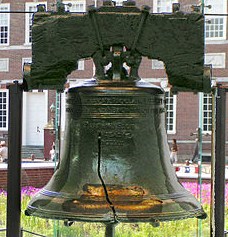Rutgers beat Princeton in the first intercollegiate football game in 1869. The two teams used a round ball, and each university had its own set of rules. Since the game was at Rutgers, they used the Rutgers rules. Players could only kick the ball; they could not throw the ball or run with the ball. The first team to score six points won. Rutgers won by two points.
 Parker Brothers bought the patent for Monopoly in 1935 from inventor Elizabeth Magie. Magie had patented two forms of the game. The first patent, Monopoly I, was filed in 1904. That patent expired in 1921, so she filed a second patent (Monopoly II) in 1924. Magie sold the game, originally called The Landlord’s Game, to Parker Brothers for $500.00. Today Hasbro owns the rights to the game. Children could learn about Magie at: Elizabeth Magie.
Parker Brothers bought the patent for Monopoly in 1935 from inventor Elizabeth Magie. Magie had patented two forms of the game. The first patent, Monopoly I, was filed in 1904. That patent expired in 1921, so she filed a second patent (Monopoly II) in 1924. Magie sold the game, originally called The Landlord’s Game, to Parker Brothers for $500.00. Today Hasbro owns the rights to the game. Children could learn about Magie at: Elizabeth Magie.
Meet the Press premiered in 1947. It is the oldest running show on television. A panel of news reporters interviews a different guest, often a politician, each week. Every President since John F. Kennedy has appeared on the show.
Philadelphia became the first American World Heritage City in 2015. UNESCO World Heritage announced the award during a conference in Ariquipa, Peru. Other World Heritage Cities include Florence, Saint Petersburg, Paris, Jerusalem, and Prague. Children can learn more at: Philadelphia.
James Naismith (born Almonte, Ontario, Canada, 1861; died Lawrence, Kansas, November 28, 1939) invented basketball in 1891. He was given the task of designing a game that could keep track and field athletes in shape and be played indoors during the cold winter. He created the first hoop from a peach basket, and the first basketball was actually a soccer ball. Children can read more about the original rules of the game at: Basketball Rules. Children could also read John Coy’s Hoop Genius: How a Desperate Teacher and a Rowdy Gym Class Invented Basketball.
Adolphe Sax (born Dinant, Belgium, 1814; died Paris, France, February 7, 1894) invented the saxophone and all its relatives. He became famous and wealthy. Children could watch and hear a saxophone and a HUGE saxophone being played at: Saxophone. Is the saxophone a woodwind instrument or a brass instrument?

John Philip Sousa
John Philip Sousa (born Washington, DC, 1854; died Reading, Pennsylvania, March 6, 1932) was a band conductor and a composer. He wrote, among other works, “The Stars and Stripes Forever.” Children can read about him at: Sousa.
